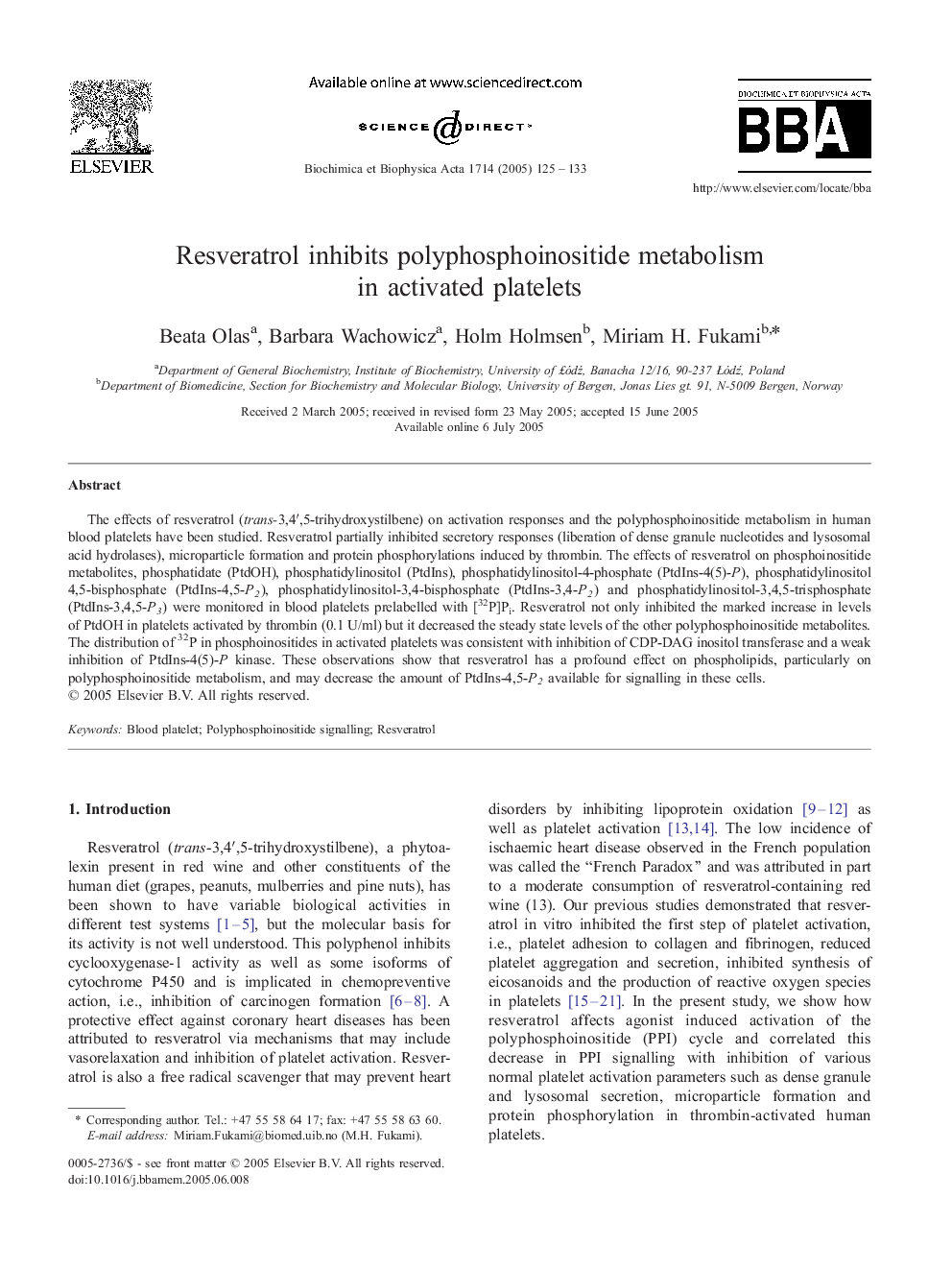| Article ID | Journal | Published Year | Pages | File Type |
|---|---|---|---|---|
| 10798188 | Biochimica et Biophysica Acta (BBA) - Biomembranes | 2005 | 9 Pages |
Abstract
The effects of resveratrol (trans-3,4â²,5-trihydroxystilbene) on activation responses and the polyphosphoinositide metabolism in human blood platelets have been studied. Resveratrol partially inhibited secretory responses (liberation of dense granule nucleotides and lysosomal acid hydrolases), microparticle formation and protein phosphorylations induced by thrombin. The effects of resveratrol on phosphoinositide metabolites, phosphatidate (PtdOH), phosphatidylinositol (PtdIns), phosphatidylinositol-4-phosphate (PtdIns-4(5)-P), phosphatidylinositol 4,5-bisphosphate (PtdIns-4,5-P2), phosphatidylinositol-3,4-bisphosphate (PtdIns-3,4-P2) and phosphatidylinositol-3,4,5-trisphosphate (PtdIns-3,4,5-P3) were monitored in blood platelets prelabelled with [32P]Pi. Resveratrol not only inhibited the marked increase in levels of PtdOH in platelets activated by thrombin (0.1 U/ml) but it decreased the steady state levels of the other polyphosphoinositide metabolites. The distribution of 32P in phosphoinositides in activated platelets was consistent with inhibition of CDP-DAG inositol transferase and a weak inhibition of PtdIns-4(5)-P kinase. These observations show that resveratrol has a profound effect on phospholipids, particularly on polyphosphoinositide metabolism, and may decrease the amount of PtdIns-4,5-P2 available for signalling in these cells.
Keywords
Related Topics
Life Sciences
Biochemistry, Genetics and Molecular Biology
Biochemistry
Authors
Beata Olas, Barbara Wachowicz, Holm Holmsen, Miriam H. Fukami,
